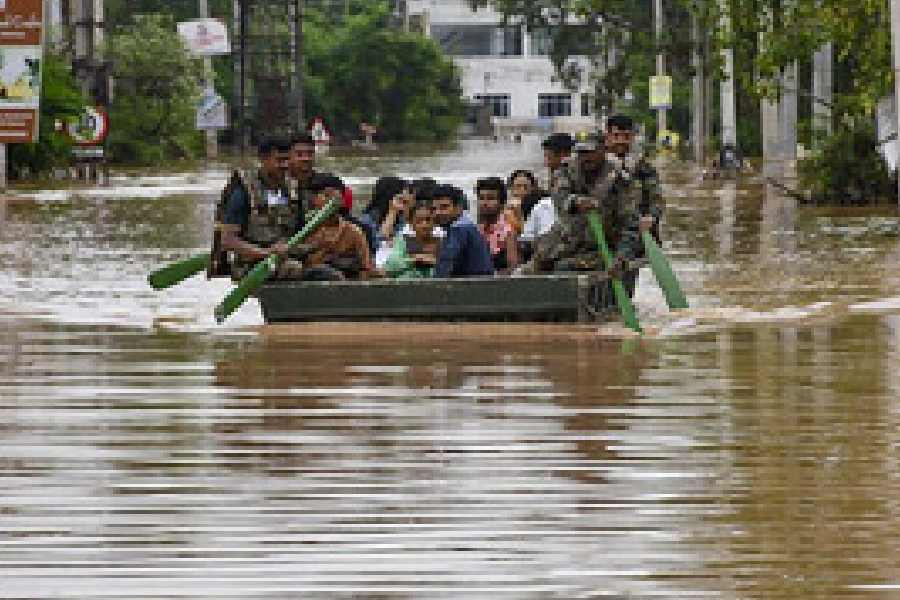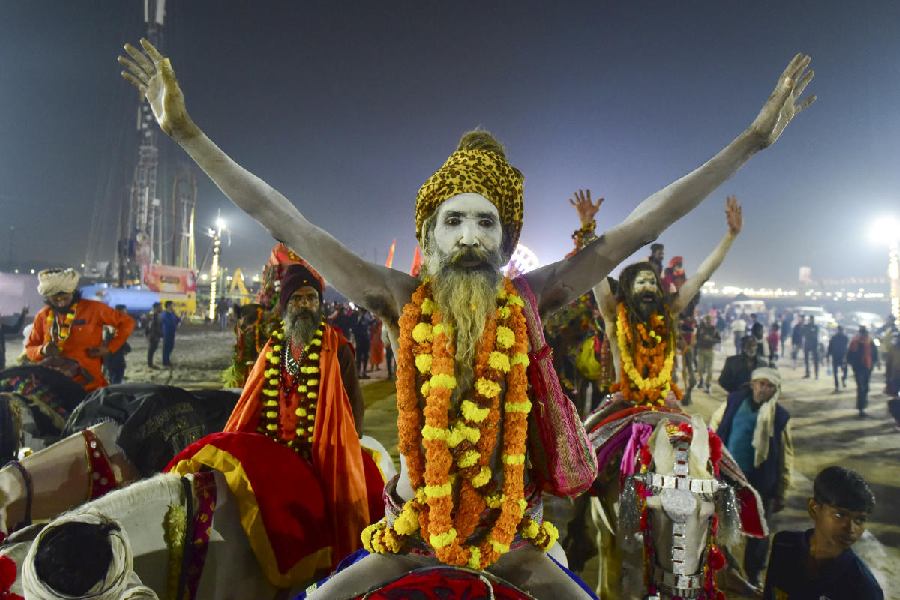Forty-one people were killed and 1,616 are living in 173 relief camps following the floods that hit Punjab recently, officials said.
Nineteen districts -- Tarn Taran, Ferozepur, Fatehgarh Sahib, Faridkot, Hoshiarpur, Rupnagar, Kapurthala, Patiala, Moga, Ludhiana, SAS Nagar, Jalandhar, Sangrur, SBS Nagar, Fazilka, Gurdaspur, Mansa, Bathinda and Pathankot -- were affected by the floods.
The government and rescue agencies evacuated 27,286 to safety people from waterlogged areas, the officials said on Tuesday.
According to a Revenue Department report, 41 people died in the floods.
Several districts of Punjab and Haryana were recently battered by heavy rains that paralysed daily life and flooded vast tracts of residential and agricultural land.
Punjab Power Minister Harbhajan Singh said electricity supply has been restored in all 595 areas affected by the floods.
Rupnagar, SAS Nagar, Patiala and Sangrur were the worst hit. The floods also caused significant damage to the Punjab State Power Corporation Limited (PSPCL) infrastructure, he said.
The loss is estimated to be around Rs 16 crore. The damage includes uprooted poles, damaged transformers and flooded substations, which damaged the equipment and power lines, he added.
Twenty 66 KV substations across the state were inundated, severely damaging the infrastructure.
"The loss of infrastructure has had a significant impact on the power supply in the affected areas, affecting essential services. The PSPCL workforce worked round the clock to restore power supply to the affected areas," Singh said.
PSPCL officers had outlined their priorities for restoring power with the most important being critical infrastructure such as hospitals, telecom and water supply, he said.











